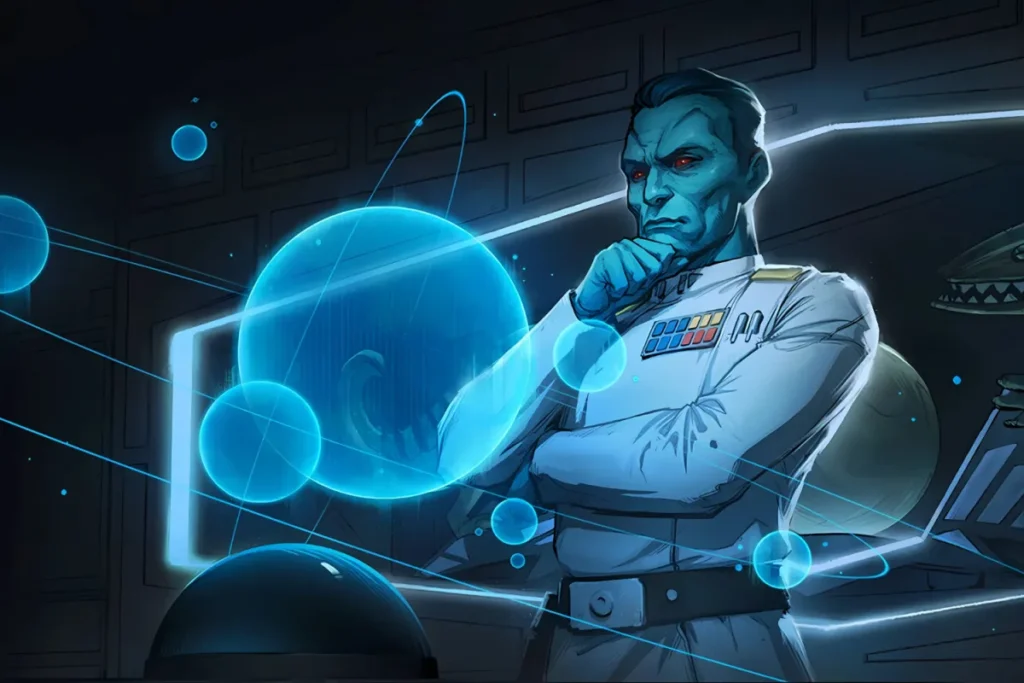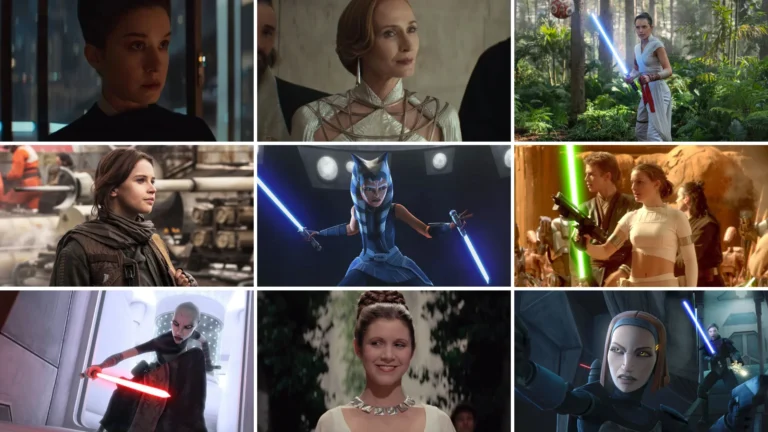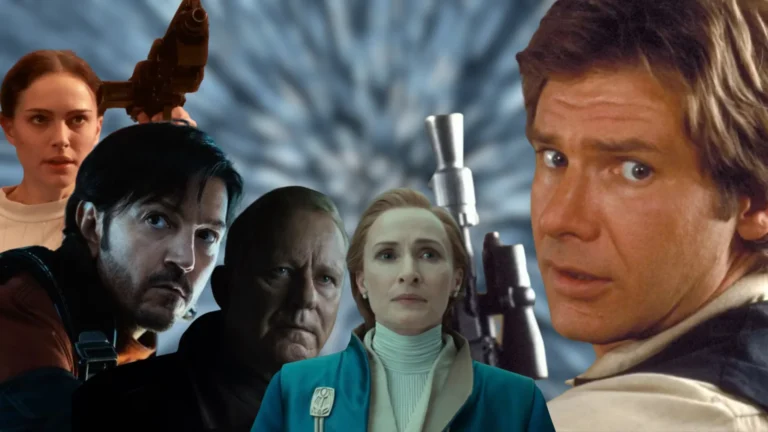Imperial officers weren’t just background extras in grey – they were the face of the Empire’s cold, bureaucratic control. From the calculating tacticians of the Imperial Navy to the stern enforcers of the ISB, each rank came with its own visual cues, power structure, and legacy within the Star Wars galaxy.
Whether you’re decoding the Imperial ranks from plaques like that on Admiral Piett’s uniform or trying to figure out what exactly made Dedra Meero a “Supervisor,” Imperial insignia are a fascinating blend of storytelling, costume design, and pseudo-military logic. This guide breaks down how the Empire’s rank system worked across its various branches – complete with what those coloured tiles mean and which characters held which titles.
How Imperial Ranks Are Displayed
Rank Plaques & Insignia Basics
If you’ve ever stared at the colourful squares on an Imperial uniform and thought, what do those mean? – you’re not alone. The Empire used a system of rectangular rank plaques worn on the left breast, often accompanied by code cylinders tucked into the tunic.
These plaques typically feature one or two rows of small tiles – usually in combinations of red, blue, yellow, or grey. The number of tiles, their arrangement, and the row count all signal the officer’s rank and branch. While the system isn’t perfectly consistent across all appearances (thanks to behind-the-scenes costuming variations), some general rules hold.
- Tile count matters: More tiles usually mean a higher rank.
- Colours are key: Red and blue are common in the Navy, while ISB officers sometimes use yellow or all-grey.
- Code cylinders: These pen-like tubes indicate security clearance and access level.
Single-Row vs Double-Row Plaques
The number of plaque rows tends to correlate with authority. Most junior officers and line-level commanders wear a single-row plaque. These tend to be compact and simple – ideal for fleet captains or army majors.
Double-row plaques often signify senior leadership – think Admirals, Generals, and Directors. The second row adds not just visual complexity, but symbolic weight. A double plaque says: I outrank you – and probably have the Emperor on speed dial.
It’s not a perfect science, but within each branch, the row style helps indicate who’s calling the shots.
Officer Rank Hierarchy by Branch (with Notable Members)
The Galactic Empire maintained distinct rank structures across its core branches: the Navy, Army, Starfighter Corps, and the shadowy ISB. Below, we break down key ranks in each branch – along with the officers who wore them best (or worst).
Imperial Navy
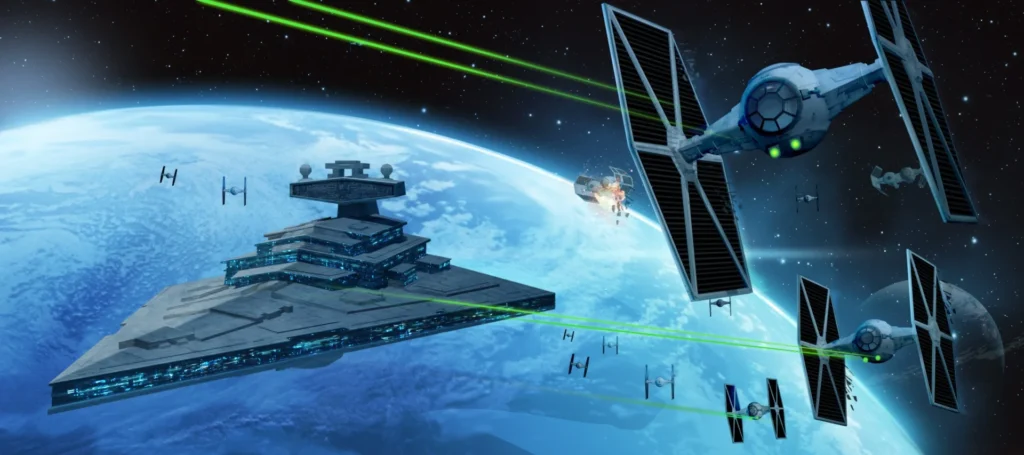
Ensign
Entry-level commission, often seen on bridge crew and logistics officers.
Notable: Generic crew on the Death Star and Star Destroyers, typically unnamed.
Lieutenant / Lieutenant Commander
Junior command roles on starships – often managing specific divisions like communications or navigation.
Notable: Lieutenant Tanbris (Executor), various bridge staff under Vader.
Commander
Oversees departments or smaller vessels.
Notable: Commander Praji (A New Hope), seen reporting to Vader.
Captain
Commands capital ships or large space installations.
Notable: Captain Needa (Executor, The Empire Strikes Back) – famously apologised mid-force choke.
Commodore
Intermediate flag rank, often not seen on-screen.
Notable: Mentioned in extended universe materials and games.
Admiral / Fleet Admiral
High command over fleet operations.
Notable: Admiral Piett (promoted on-screen), Admiral Ozzel (force-choked for incompetence), Grand Admiral Thrawn (Expanded canon, double-row plaque, white uniform).
Imperial Army & Starfighter Corps
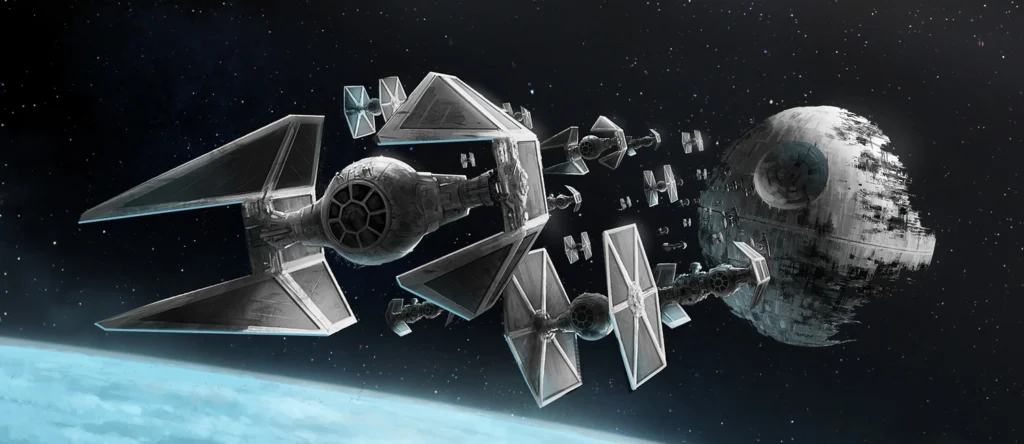
Second Lieutenant / Lieutenant
Lead ground units or squadrons.
Notable: Various background officers on Hoth and Scarif.
Captain / Major
Command battalions or serve as senior staff.
Notable: Major Marquand (Return of the Jedi) – Endor ground operations.
Colonel
Key tactical leaders in ground campaigns.
Notable: Colonel Yularen (pre-ISB), seen in A New Hope.
General
High-ranking field commanders.
Notable: General Veers (Empire Strikes Back) – led the AT-AT assault on Hoth; efficient and ruthlessly effective.
Imperial Security Bureau (ISB)
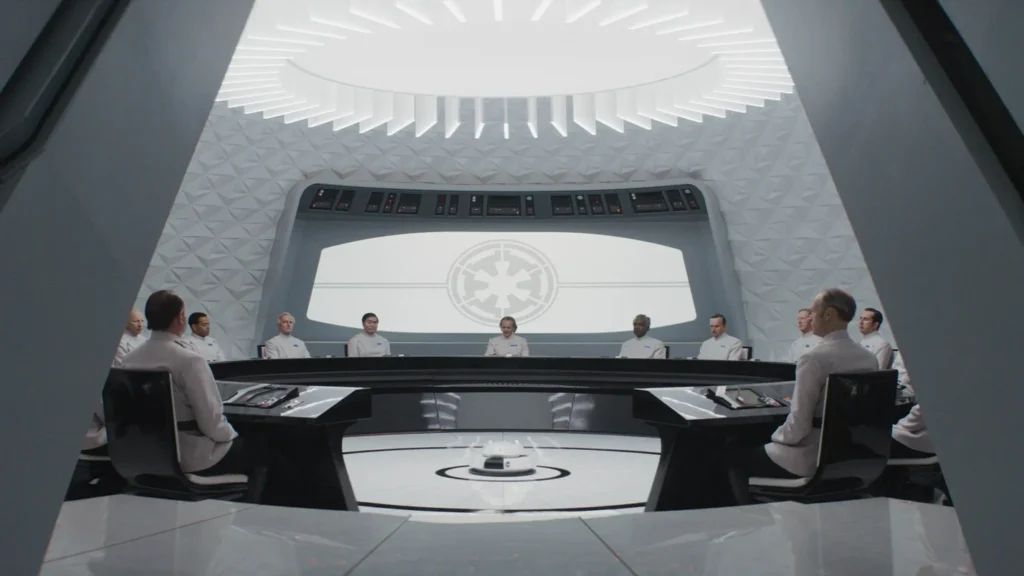
Lieutenant / Supervisor
Entry to mid-level intelligence officers.
Notable: Supervisor Dedra Meero (Andor) – rising star of ISB’s covert ops.
Major / Colonel
Mid-senior roles, overseeing investigations and internal compliance.
Notable: Major Partagaz (Andor) – stone-faced bureaucratic menace.
Director / Deputy Director
Strategic oversight and internal authority rivalled only by the Emperor’s inner circle.
Notable: Director Krennic (Rogue One) – though technically not ISB, he wore their plaque style; Director Armand Isard (Legends).
Understanding Tile Colours
Imperial rank plaques may all look vaguely like pixel art, but the colours are surprisingly consistent – if you know what to look for. These coloured tiles help denote not only rank but also the officer’s branch and sometimes their function within the Empire.
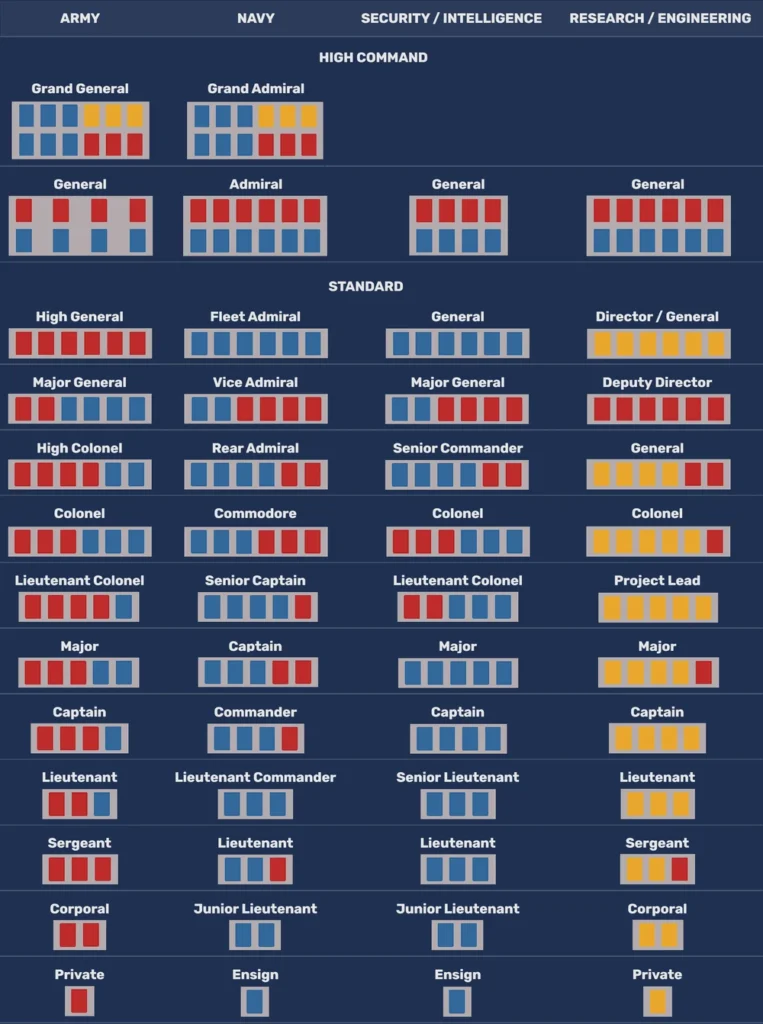
Red and Blue Tiles
These are the most common across the Imperial Navy and Army. While exact configurations vary, some general patterns include:
- Navy Officers: Frequently use red-and-blue tile combinations. More red often means higher authority.
- Army Officers: May feature balanced or alternating red/blue patterns.
- Commanders and Captains: Typically use six- or eight-tile arrangements.
Yellow Tiles
Yellow tiles are rarely seen – but when they are, they often signal ISB affiliation or a specialised intelligence role.
- ISB Supervisors: Plaques with yellow tiles (sometimes combined with blue) distinguish them from typical military ranks.
- Dedra Meero in Andor wears a unique configuration that reflects her non-military yet high-authority position.
Grey and Black Tiles
Used in some visual media and promotional materials but less canonically consistent. These are sometimes applied to denote administrative or non-combat roles, though rarely seen in the core films.
Plaque Configurations by Number
- Six-Tile Plaques: Mid-level ranks (Captain, Major)
- Twelve-Tile Double Row: High command (Admiral, General, Director)
While not all tile setups are officially explained in canon, their visual use reinforces the Empire’s cold, hierarchical structure – where even colour is part of control.
Rank Comparisons & Equivalents
Trying to decode the Galactic Empire’s officer ranks using Earth-based logic? You’re not alone. While Star Wars was always more space opera than strict military sim, there’s enough structure to loosely map Imperial ranks to real-world systems – especially those used in the US Navy, UK military, or NATO codes.
Navy Equivalents
| Imperial Rank | NATO/US Navy Equivalent | Notable Character |
|---|---|---|
| Ensign | Ensign / OF-1 | Bridge officers (ANH) |
| Lieutenant | Lieutenant / OF-2 | Lieutenant Tanbris |
| Commander | Lt. Commander / OF-3 | Commander Praji |
| Captain | Captain / OF-5 | Captain Needa |
| Admiral | Rear Admiral / OF-7+ | Admiral Piett |
| Grand Admiral | Fleet Admiral / OF-9 | Thrawn (Legends/Canon) |
Army & Starfighter Corps Equivalents
| Imperial Rank | NATO/US Army Equivalent | Notable Character |
|---|---|---|
| Second Lieutenant | 2nd Lt. / OF-1 | Background officers |
| Captain | Captain / OF-2 | Major Marquand (Endor) |
| Major | Major / OF-3 | Seen in ROTJ |
| Colonel | Colonel / OF-5 | Yularen (pre-ISB) |
| General | General / OF-7+ | General Veers |
ISB Roles & Intelligence Equivalents
ISB doesn’t slot easily into standard military frameworks – it’s more like a mix of FBI, MI5, and SS-style intelligence policing.
| ISB Title | Real-World Equivalent | Notable Character |
|---|---|---|
| Supervisor | Field Agent / Analyst | Dedra Meero |
| Major / Colonel | Special Agent / Director | Major Partagaz |
| Director | Intelligence Chief | Armand Isard (Legends) |
These comparisons help ground the Empire’s fictional military in structures fans already understand – making the ranks feel more believable and functionally terrifying.

